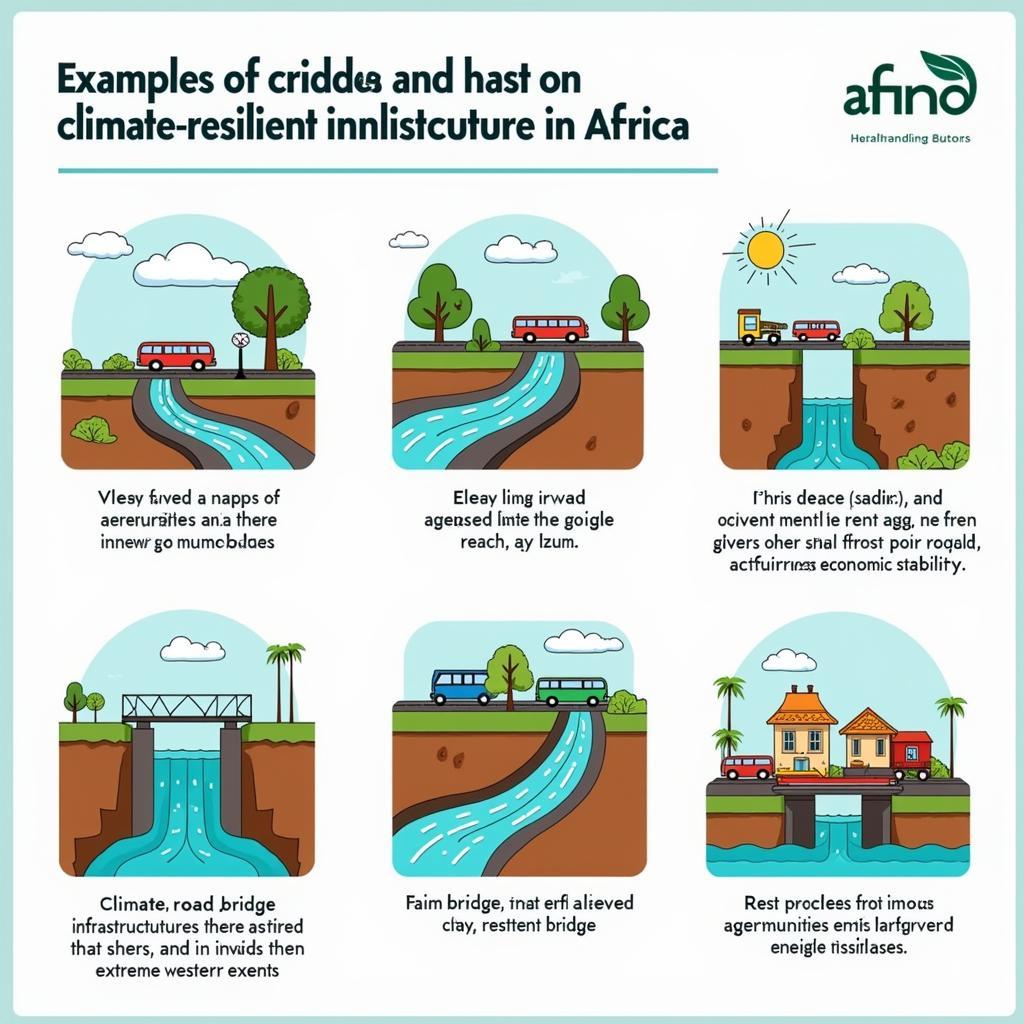African Climate & Development Initiative: Navigating a Changing Landscape
The African continent is particularly vulnerable to the impacts of climate change. Rising temperatures, changing rainfall patterns, and increased frequency of extreme weather events threaten agricultural productivity, water security, and human health. This vulnerability is compounded by existing development challenges such as poverty, inequality, and limited access to resources. The African Climate & Development Initiative aims to integrate climate action into development strategies, fostering resilience and sustainable growth. This involves promoting climate-smart agriculture, investing in renewable energy, and building climate-resilient infrastructure. The initiative also recognizes the importance of capacity building and knowledge sharing to empower African nations to effectively address climate change. One example is the African Green Revolution Forum, which focuses on agricultural transformation and sustainable food systems.
Understanding the Challenges of Climate Change in Africa
Climate change is not just an environmental issue; it’s a development issue. It exacerbates existing inequalities and hinders progress towards sustainable development goals. Understanding the specific challenges faced by different regions within Africa is crucial for developing effective adaptation and mitigation strategies.
The Impact on Agriculture and Food Security
Agriculture is the backbone of many African economies, and climate change poses a severe threat to food security. Changes in rainfall patterns, increased droughts, and the spread of pests and diseases are reducing crop yields and livestock productivity. This leads to food shortages, price increases, and increased vulnerability to malnutrition.
Water Scarcity and its Consequences
Water is a precious resource, and climate change is exacerbating water scarcity across Africa. Decreased rainfall, increased evaporation, and shrinking glaciers are impacting water availability for both human consumption and agricultural purposes. This leads to conflicts over water resources, displacement of communities, and increased health risks.
Investing in Climate-Resilient Development
Addressing the challenges of climate change requires significant investments in climate-resilient development. This involves adopting sustainable agricultural practices, investing in renewable energy sources, and building infrastructure that can withstand extreme weather events.
Promoting Climate-Smart Agriculture
Climate-smart agriculture is an approach that aims to increase agricultural productivity, build resilience to climate change, and reduce greenhouse gas emissions. This involves adopting practices such as drought-resistant crops, water conservation techniques, and integrated pest management. African Cotton Industries are particularly vulnerable to climate change and could benefit from such initiatives.
The Role of Renewable Energy
Africa has enormous potential for renewable energy, including solar, wind, and geothermal. Investing in renewable energy can provide clean and affordable energy, reduce reliance on fossil fuels, and create new economic opportunities. This is where initiatives like African Development Funds Incorporated and African Development Bank Loans and Grants play a vital role.
Building Climate-Resilient Infrastructure
Climate change is increasing the frequency and intensity of extreme weather events such as floods, droughts, and heatwaves. Investing in climate-resilient infrastructure, such as flood defenses, drought-resistant water systems, and resilient transportation networks, is crucial for protecting communities and ensuring economic stability.
 Climate-Resilient Infrastructure in Africa
Climate-Resilient Infrastructure in Africa
“Climate change is not just an environmental challenge; it is a fundamental development challenge for Africa,” says Dr. Amina Osman, a leading climate scientist based in Nairobi.
Conclusion
The African Climate & Development Initiative is essential for securing a sustainable future for the continent. By integrating climate action into development strategies, African nations can build resilience to climate change, promote economic growth, and improve the lives of their citizens. Investing in climate-smart agriculture, renewable energy, and climate-resilient infrastructure is crucial for achieving these goals.
“Investing in climate resilience is not just about mitigating risks; it’s about unlocking opportunities for sustainable development and economic growth,” adds Professor Kwame Nkrumah, an expert in sustainable development at the University of Accra.
FAQ
- What is the African Climate & Development Initiative?
- How is climate change impacting Africa?
- What are the key challenges to climate-resilient development in Africa?
- What are some examples of climate-smart agriculture?
- What is the role of renewable energy in addressing climate change in Africa?
- How can we build climate-resilient infrastructure?
- What are the key funding mechanisms for climate action in Africa?
Need support? Contact us 24/7: Phone: +255768904061, Email: kaka.mag@gmail.com or visit us at Mbarali DC Mawindi, Kangaga, Tanzania.